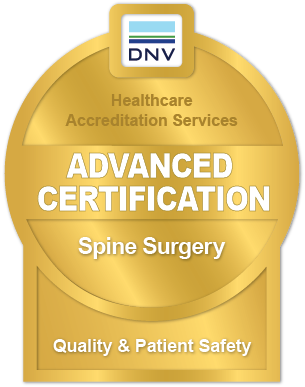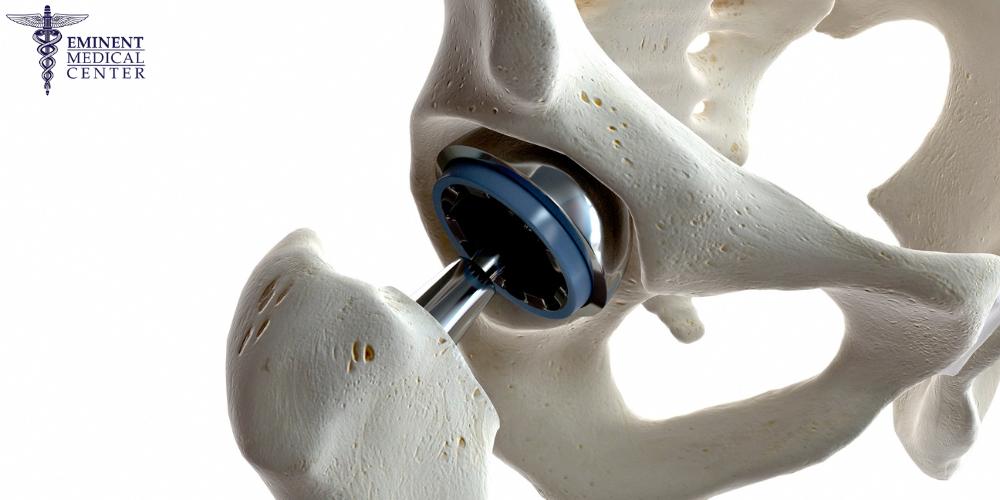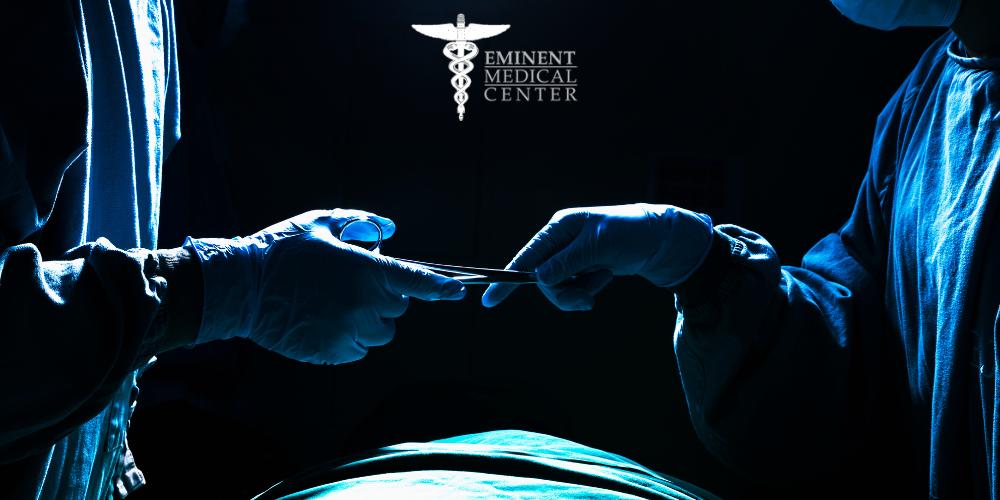Total Joint Surgery


Total Joint Surgery in Richardson, TX
Eminent Medical Center is your trusted state-of-the-art healthcare center in Richardson, Texas. We offer a variety of surgical procedures to patients who suffer daily pain and reduced quality of life, including total joint surgery. Below, we break down everything you need to know about total joint surgery, including common types of joint replacements, candidacy criteria, the surgical process, recovery expectations, and the benefits and risks associated with this procedure. At Eminent Medical Center, we prioritize patient care and safety, and we are here to guide you through every step of your total joint surgery journey.
Call 469-910-8800 to schedule an appointment at Eminent Medical Center today.


What is Total Joint Surgery?
Total joint surgery, also known as joint replacement surgery, is a medical procedure designed to alleviate pain, improve joint function, and enhance the overall quality of life for individuals suffering from severe joint conditions. It involves the removal of damaged or diseased joint components and replacing them with artificial prostheses made of plastic, ceramic, or metal. This procedure can significantly enhance mobility and reduce pain, enabling patients to regain their active lifestyles.
Common Types of Joint Replacement Surgeries
Total joint surgery can be performed on various joints in the body, but the most common types of joint replacements include hip, knee, and shoulder replacements.
Hip Replacement
Hip replacement surgery, also known as hip arthroplasty, involves the replacement of the damaged joint with a prosthetic implant. A total hip replacement procedure is often recommended for patients born with congenital anomaly.
Knee Replacement
Knee replacement, also called knee arthroplasty, is a surgical procedure that replaces the damaged knee joint with an artificial knee implant. It is typically performed on patients with severe knee osteoarthritis, rheumatoid arthritis, or knee injuries. A total knee replacement procedure is often recommended for patients born with congenital anomaly.
Shoulder Replacement
Shoulder replacement surgery is reserved for patients with severe shoulder joint conditions, such as osteoarthritis or rotator cuff injuries. During this procedure, the damaged parts of the shoulder joint are replaced with artificial components.
Types of Joint Implant Devices

There are several types of joint implant devices used in total joint surgeries, each with its own unique characteristics and benefits. These include:
- Metal-on-Polyethylene: This common implant combination consists of a metal component articulating against a polyethylene (plastic) component. It provides good durability and is often used in hip and knee replacements.
- Ceramic-on-Polyethylene: This implant is made up of a ceramic component paired with a polyethylene component. It offers low friction and excellent wear resistance, making it a popular choice for hip and knee replacements.
- Ceramic-on-Ceramic: Ceramic-on-ceramic implants utilize ceramic components for both articulating surfaces. This combination provides exceptional durability and minimal wear, making it suitable for patients with high activity levels.
- Ceramic-on-Metal: This implant is made up of a ceramic component and a metal one. It offers the advantages of ceramic’s low wear rates while maintaining the stability provided by metal.
It’s important to note that metal-on-metal joint implants, once a popular option, are no longer used in total joint surgeries due to complications such as device failure and metallosis. Metal-on-metal implants have been associated with an increased risk of adverse reactions to metal ions released into the bloodstream, leading to tissue and bone damage. As a result, orthopedic surgeons have shifted towards safer implant materials and configurations to ensure the long-term success and well-being of patients undergoing total joint surgery.
Your primary care doctor and orthopaedic surgeon can offer a complete physical examination of the damaged joint and help you pick the best type of implant for your body and normal activity levels.
Who is a Good Candidate for Total Joint Surgery?
The decision to undergo total joint surgery is based on several factors, including the severity of joint pain, the impact on daily activities, and the effectiveness of conservative and nonsurgical treatments. If the following issues apply to your day-to-day life, your surgeon may recommend total joint replacement surgery.

It is crucial to consult with an orthopedic specialist to determine your candidacy for total joint surgery. Our experienced team of healthcare professionals will assess your condition and guide you through the decision-making process.
Patient Testimonials
Eminent Medical Center strives for the highest quality healthcare and is measured by the satisfaction of our patients overall experience.
EXCELLENTTrustindex verifies that the original source of the review is Google. I just had my second knee replacement surgery within 12 months (Dr. Berry is awesome!) and both were done at Eminent Center. The entire staff is friendly and caring from the time you walk in until the time you leave! Big kudos to the nursing staff. From surgery prep to the operating room to recovery they really have great attitudes. Thanks so much to my floor nurses. They are fantastic!!! Great experience overall!!!Posted onTrustindex verifies that the original source of the review is Google. I been here 4 times for my procedures. The best and friendliest staffs a patient can ever ask for!! Keep up the good work!! Thank you!Posted onTrustindex verifies that the original source of the review is Google. The team made sure they communicated with me very well. I knew everything I had to do every inch of detail, the facility was great, and the surgery went great. The instructions and follow up was outstanding.Posted onTrustindex verifies that the original source of the review is Google. EVERYONE was superb here- from the minute you walk in the door to the minute you leave! Attentive care for my recent surgery- made the process go smoothlyPosted onTrustindex verifies that the original source of the review is Google. The staff was amazing during my surgery! Friendly, professional, and caring through my entire experience. As an RN myself it was refreshing to have such a great experience with quality staff! Thank you to all the nurses and staff that cared for me! I highly recommend using this facility!Posted onTrustindex verifies that the original source of the review is Google. The place Is clean with a very friendyatavvyPosted onTrustindex verifies that the original source of the review is Google. The staff was great. My wait time was minimal. Very nice facility. I would recommend them to anyone needing day surgery such as I did. Thank you Eminent Medical.Posted onTrustindex verifies that the original source of the review is Google. Absolutely the best to ever do it! So, kind and the sense of urgency and willing to make you feel comfortable was amazing, good job to the team and my family and I are greatly appreciative!!!Posted onTrustindex verifies that the original source of the review is Google. My care was amazing. The food was descent and the doctors went above and beyond to make sure surgery was successful.Posted onTrustindex verifies that the original source of the review is Google. The whole experience wasn't stressful at all. The staff was amazing.. from checking in to prepping for the surgery they were friendly and helpful. Also, the building is very nice and they even have a little Bistro right there for those that are waiting. Thank you for making things so easy!
What to Expect Before, During, and After Your Total Joint Replacement
Understanding what to expect before, during, and after your total joint replacement surgery is essential to prepare mentally and physically for the procedure.
Before Surgery
This is what to expect before your total joint replacement surgery:
- Consultation and Evaluation: Your total joint replacement journey begins with a consultation with an orthopedic surgeon. During this appointment, your surgeon will evaluate your medical history, conduct a physical examination, and may order imaging tests such as X-rays or MRI scans to assess the joint's condition. Your surgeon will also help you pick the best type of implant for your body.
- Preoperative Preparation: Once your orthopaedic surgery is scheduled, you will receive detailed preoperative instructions. These instructions may include dietary restrictions, medications to stop or adjust, and guidelines for maintaining general health.
- Anesthesia: Most joint replacement surgeries are performed under either general anesthesia (where you're unconscious) or regional anesthesia (where only the surgical area is numbed).
During Surgery
This is what will happen during your total joint replacement surgery:
- Surgical Procedure: Total joint surgery typically takes several hours to complete. Details on your procedure should be discussed with your physician. The type of implant used will depend on the specific joint being replaced.
- Postoperative Monitoring: After the surgery, you will be closely monitored in the recovery area.

After Surgery
This is what to expect after shoulder, hip, or knee replacement surgery:
- Recovery Room: You will spend some time in the recovery room before being transferred to your hospital room or discharged home.
- Postoperative Care: Recovery at home may include pain management, prescribed medications, and exercises prescribed by your surgeon or physical therapist. Follow your surgeon's instructions carefully to aid in a smooth recovery.
- Physical Therapy: Physical therapy plays a crucial role in the rehabilitation process. You will work with a physical therapist to regain strength, mobility, and functionality in your new joint.
- Follow-Up Appointments: Regular follow-up appointments with your surgeon are essential to monitor your progress and address any concerns or complications that may arise.
How Long Do Joint Replacements Last?
One of the common concerns patients have about joint replacement surgery is the longevity of the artificial joint. Modern prosthetic joints are designed to last for many years, often exceeding a decade or more. Regular follow-up appointments and adhering to your surgeon’s recommendations can help extend the life of your joint replacement.
Benefits of Total Joint Surgery

Shoulder, knee, and hip replacements offer numerous benefits to patients, including:
- Pain Relief: Joint replacement surgery effectively reduces or eliminates chronic joint pain, allowing patients to enjoy a better quality of life.
- Improved Mobility: Most patients typically experience improved joint mobility and functionality, enabling them to perform daily activities with ease.
- Enhanced Quality of Life: Joint replacement surgery can restore patients’ independence and ability to participate in hobbies and activities they may have had to give up due to joint pain.
- Long-Term Success: With advancements in medical technology and surgical techniques, joint replacements have a high success rate and can last for many years.
- Reduced Medication Dependency: Many patients no longer need to rely on medications to relieve pain in their affected shoulder, knee, or hip joint.
